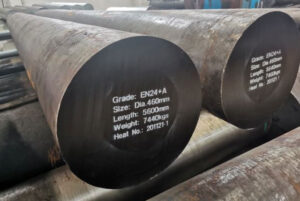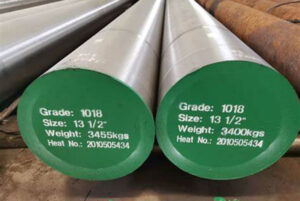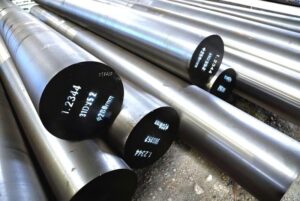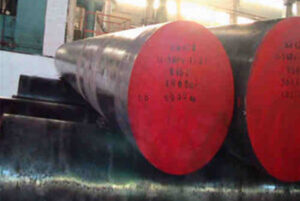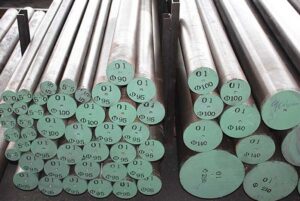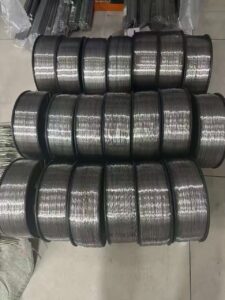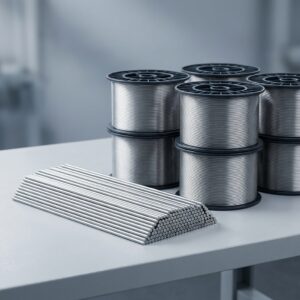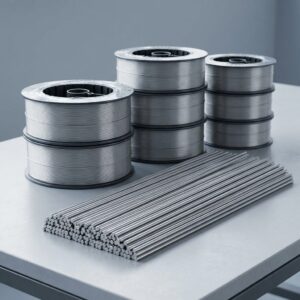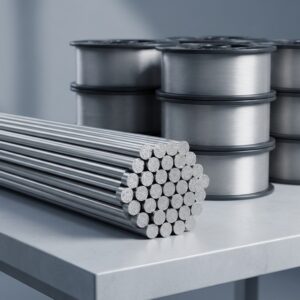In the realm of engineering marvels, where resilience and performance reign supreme, special alloy steels emerge as the gladiators. Among these champions stand Special Steel 18CrNiMo7-6 and 17CrNiMo6 (1.6587), a formidable duo renowned for their exceptional strength, toughness, and versatility. But what exactly makes these alloys tick? Let’s delve deeper and unlock their secrets.
Thành phần và Đặc tính
At the heart of these special steels lies a carefully orchestrated blend of elements. Here’s a breakdown of their key constituents and the properties they impart:
| Nguyên tố | Function |
|---|---|
| Crôm (Cr) | Enhances hardenability, corrosion resistance, and high-temperature strength. |
| Niken (Ni) | Improves toughness, ductility, and weldability. |
| Molypden (Mo) | Bolsters tempering resistance and high-temperature strength. |
| Carbon (C) | Primarily responsible for hardness and strength. |
| Manganse (Mn) | Promotes hardenability and grain refinement. |
The specific ratios of these elements differentiate 18CrNiMo7-6 from 17CrNiMo6 (1.6587). 18CrNiMo7-6 boasts a slightly higher chromium content, translating to enhanced corrosion resistance, particularly beneficial in demanding environments.
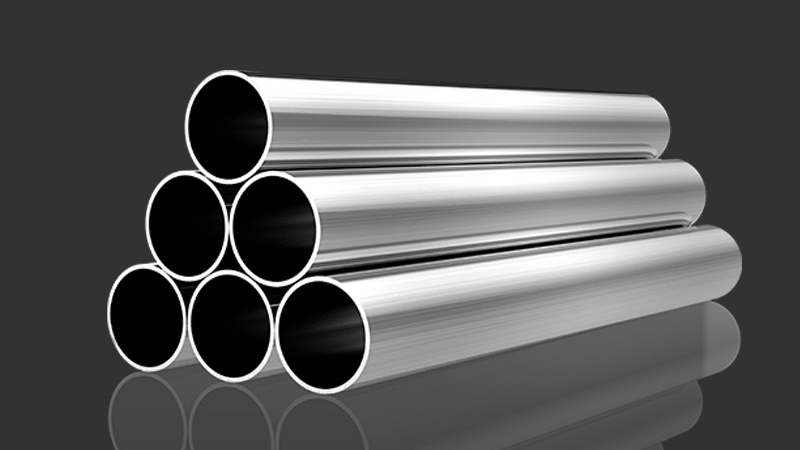
Metal Powder Considerations
While traditionally produced through ingot metallurgy, metal additive manufacturing (MAM) is increasingly shaping the landscape. Let’s explore some noteworthy metal powder options for these special steels:
- Atomized Gas-Atomized Powders: These powders, created by rapidly quenching molten metal droplets with an inert gas, offer exceptional sphericity and flowability, crucial for MAM processes.
- Water-Atomized Powders: Produced by a similar process using water instead of gas, these powders are generally more cost-effective but may exhibit slightly irregular shapes.
- Electrode Induction-Slag Remelting (ESR) Powders: ESR powders undergo a meticulous refining process, resulting in superior cleanliness and minimized inclusions, ideal for high-performance applications.
- Plasma Atomized Powders: Employing high-temperature plasma torches, this method yields fine, spherical powders suitable for intricate geometries.
- Laser Beam Melting (LBM) Powders: Specially formulated for LBM additive manufacturing, these powders possess optimal laser absorption characteristics for precise melting and layer-by-layer construction.
- Electron Beam Melting (EBM) Powders: Tailored for EBM processes, these powders exhibit high melting points and excellent flowability to facilitate efficient beam melting.
- Carbided Powders: These pre-alloyed powders incorporate a controlled amount of carbides, further enhancing wear resistance and hardness.
- Nitrided Powders: The introduction of nitrogen during powder production can refine grain size and improve strength.
- Composite Powders: These innovative powders combine different materials, potentially offering unique combinations of properties.
- Recycled Powders: Sustainable practices are gaining traction, with recycled metal powders offering an eco-friendly alternative for MAM.
The ideal metal powder selection depends on the specific application, desired properties, and MAM technology employed. Consulting with reputable powder manufacturers and MAM experts is crucial for making an informed decision.
Ứng dụng của 18CrNiMo7-6 and 17CrNiMo6 (1.6587) alloy steels
The exceptional properties of 18CrNiMo7-6 and 17CrNiMo6 (1.6587) alloy steels translate into a diverse range of applications:
| Đơn đăng ký | Reason for Use |
|---|---|
| Gears: | High surface hardness and core toughness make them ideal for withstanding heavy loads and transmitting power efficiently. |
| Shafts and Axles: | Their remarkable strength and durability ensure reliable performance in demanding rotational applications. |
| Heavy Machinery Parts: | These steels excel in wear resistance and toughness, making them well-suited for components subjected to significant stresses. |
| Critical Automotive Parts: | Transmission components and other vital automotive parts benefit from the strength and resilience these steels offer. |
| Aerospace Industry: | The high strength-to-weight ratio makes them valuable for components requiring both lightness and structural integrity in demanding aerospace environments. |
| Oil and Gas Industry: | Their resistance to corrosion and high-temperature performance make them suitable for downhole tools, wellhead components, and other equipment exposed to aggressive environments. |
| Chemical Processing Equipment: | The ability to withstand harsh chemicals and elevated temperatures makes them valuable for reaction vessels, valves, and piping systems. |
| Military and Defense Applications: | These steels offer the perfect blend of strength, toughness, and weight savings, making them ideal for weapon systems, armored vehicles, and other military equipment. |
| Molds and Dies: | Excellent wear resistance and dimensional stability make them suitable for high-volume forming operations. |
| Biomedical Implants: | Certain variations, with appropriate biocompatibility modifications, can be used for implants requiring high strength and corrosion resistance. |
Advantages and Considerations
While 18CrNiMo7-6 and 17CrNiMo6 (1.6587) alloy steels boast impressive credentials, it’s essential to acknowledge their limitations:
Advantages:
- Exceptional Strength: These steels deliver outstanding tensile, yield, and fatigue strength, enabling them to handle significant loads and stresses.
- Superior Toughness: Their inherent toughness ensures resistance to crack propagation and impact damage, crucial for applications requiring resilience.
- Enhanced Corrosion Resistance: The presence of chromium fosters superior corrosion resistance, particularly for 18CrNiMo7-6, making them suitable for demanding environments.
- Good Weldability: These steels generally exhibit good weldability, facilitating fabrication and repair processes.
- Machinability: While not as readily machinable as some mild steels, these alloys can be machined with appropriate techniques and tooling.
- High Strength-to-Weight Ratio: The combination of strength and relatively low weight makes them attractive for applications where weight reduction is critical.
Considerations:
- Cost: The alloying elements and potentially complex processing methods can elevate the cost compared to some common steels.
- Machinability Compared to Mild Steel: As mentioned earlier, these steels require more specialized machining techniques compared to mild steels.
- Heat Treatment Considerations: Heat treatment processes may be necessary to achieve optimal properties, adding complexity to the fabrication process.
The decision to utilize 18CrNiMo7-6 or 17CrNiMo6 (1.6587) hinges on specific application requirements. When exceptional strength, toughness, and corrosion resistance are paramount, and cost and machinability are less critical, these steels are prime contenders.
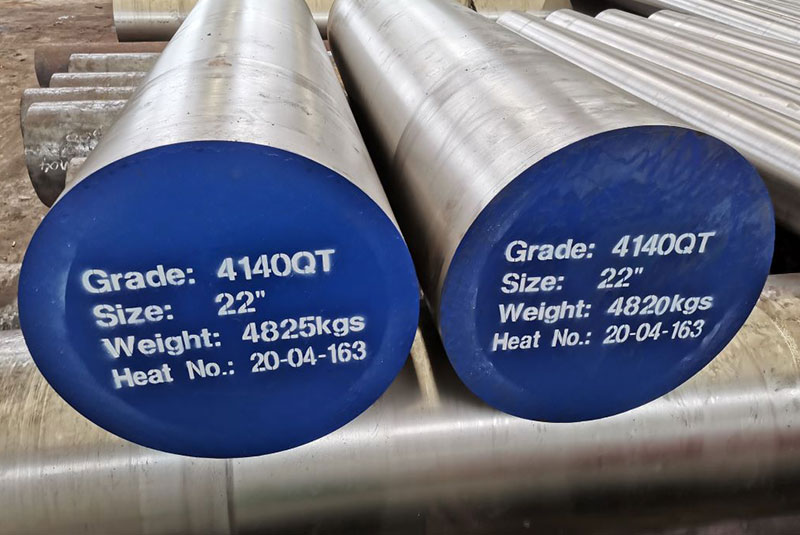
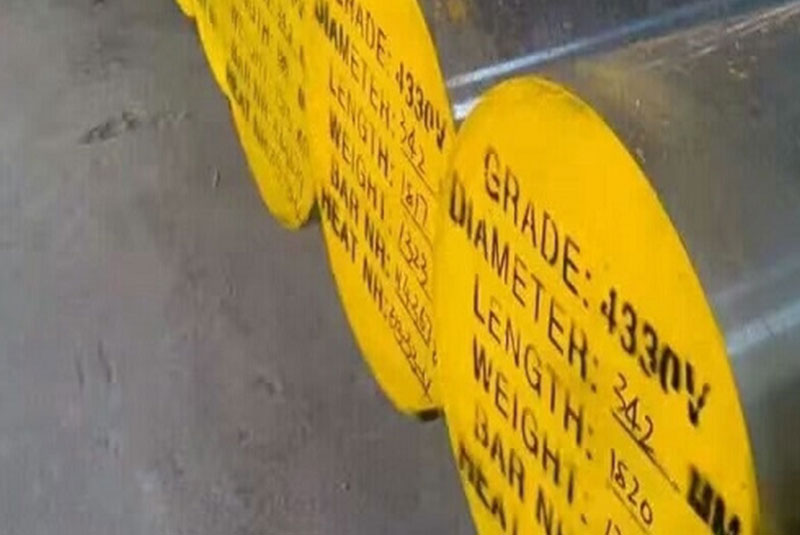
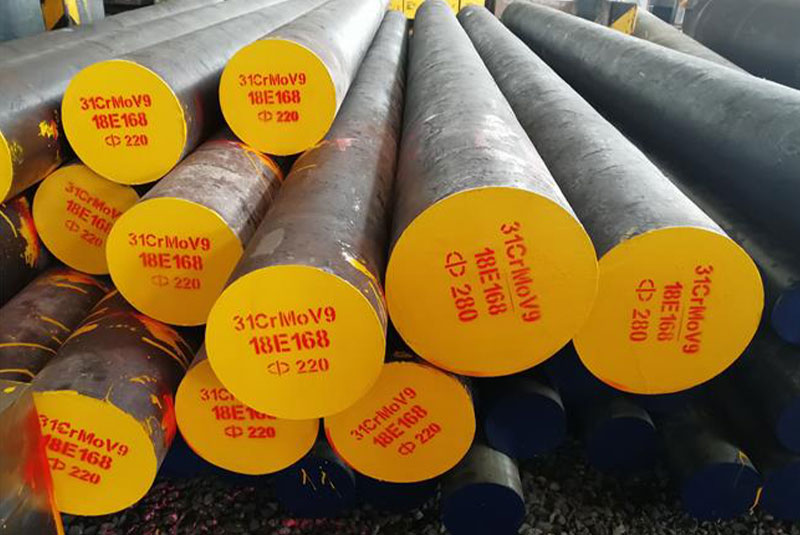
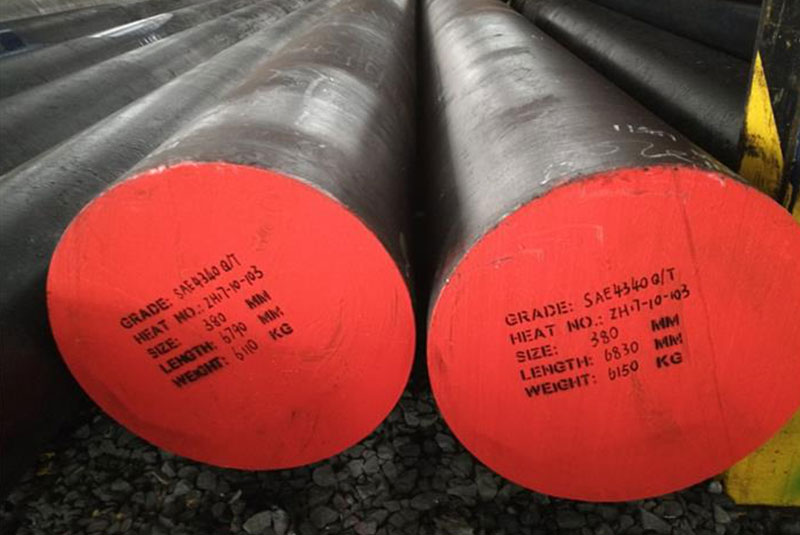
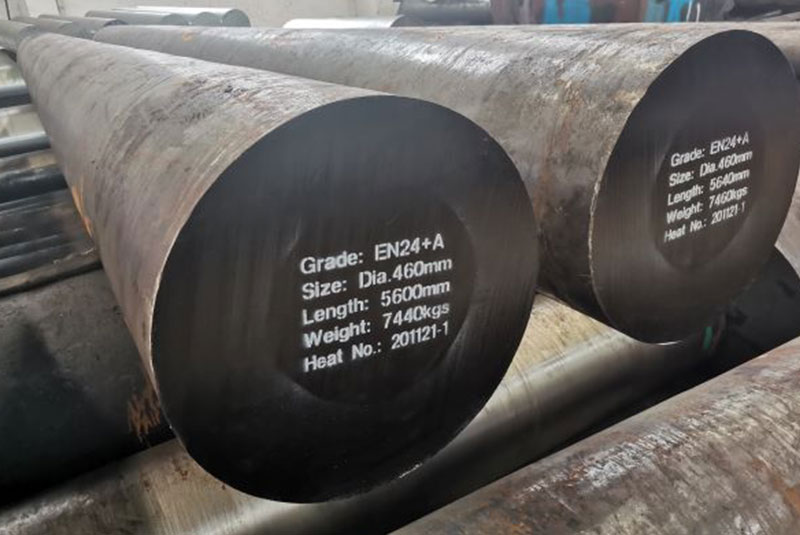
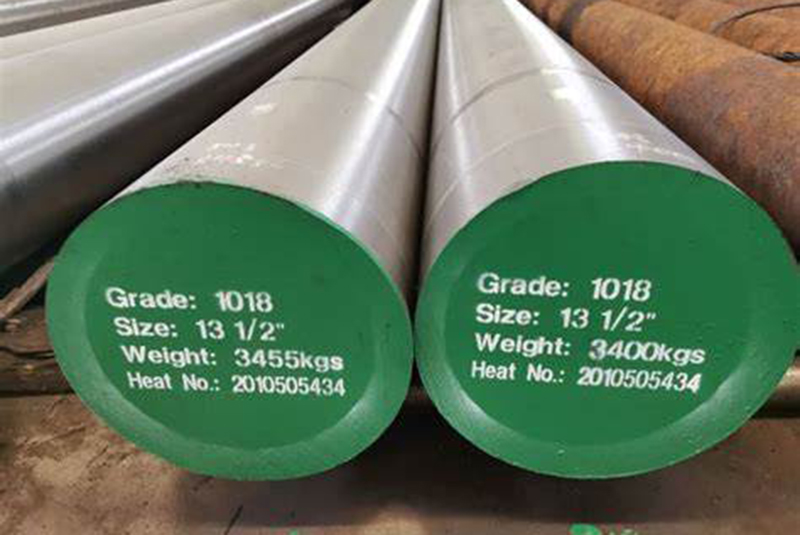
Standards and Specifications
To ensure consistent quality and performance, these special steels adhere to various international standards. Here’s a glimpse into some key specifications:
- ASTM A570: This standard encompasses forged and rolled carbon and alloy steel bars for pressure vessels, boilers, and other critical applications.
- EN 10083-1: A European standard covering wrought steel products for pressure equipment. Specific grades within this standard may be applicable depending on the steel composition and intended use.
- SAE International: This organization establishes various specifications for steels used in the automotive industry. Specific SAE grades may be designated for these special steels based on their composition and properties.
Consulting with material suppliers and engineers familiar with these standards is essential for selecting the appropriate grade for your specific application.
Nhà cung cấp và Giá cả
Several reputable steel suppliers offer 18CrNiMo7-6 and 17CrNiMo6 (1.6587) alloy steels. Here are some factors to consider when sourcing these materials:
- Reputation and Quality Control: Choose a supplier with a proven track record of supplying high-quality steels and adhering to stringent quality control measures.
- Material Certifications: Ensure the supplier can provide proper material certifications to verify the composition and properties of the steel.
- Product Availability: Consider the supplier’s ability to provide the required forms, such as bars, plates, or metal powders, depending on your needs.
- Pricing and Lead Times: Compare pricing across various suppliers and factor in lead times to ensure timely delivery for your project.
While it’s challenging to provide specific pricing due to fluctuating market conditions, expect these special steels to command a higher price point compared to common carbon steels. However, their superior performance can often justify the additional cost in demanding applications.
A Look Ahead: The Future Landscape
The future of 18CrNiMo7-6 and 17CrNiMo6 (1.6587) alloy steels appears bright. Advancements in metal additive manufacturing (MAM) are unlocking new possibilities for fabricating complex shapes and components with these high-performance steels. Furthermore, ongoing research is exploring:
- Grain Refinement Techniques: Developing innovative grain refinement methods can further enhance strength and toughness.
- Tailored Microstructures: Advanced processing techniques may enable the creation of microstructures specifically optimized for targeted applications.
- Composite Powders and Metal Matrix Composites (MMCs): Experimentation with composite metal powders and MMCs incorporating these steels with other materials holds promise for achieving unique combinations of properties.
- Sustainability Considerations: The development of more sustainable production methods and the utilization of recycled metal powders are gaining traction, aligning with eco-conscious manufacturing practices.
These advancements are poised to propel 18CrNiMo7-6 and 17CrNiMo6 (1.6587) alloy steels to even greater prominence in various industries, fostering the creation of next-generation components with unparalleled performance.

Câu hỏi thường gặp
Q: What is the difference between 18CrNiMo7-6 and 17CrNiMo6 (1.6587) alloy steel?
A: The primary difference lies in the chromium content. 18CrNiMo7-6 boasts a slightly higher chromium concentration, leading to enhanced corrosion resistance compared to 17CrNiMo6 (1.6587). For applications demanding exceptional corrosion resistance, 18CrNiMo7-6 might be the preferred choice.
Q: Can these steels be welded?
A: Generally, these steels exhibit good weldability. However, proper welding procedures and filler metals are crucial to maintain the integrity of the weld joint. Consulting with a qualified welding engineer is recommended for critical applications.
Q: Are these steels suitable for high-temperature applications?
A: Yes, 18CrNiMo7-6 and 17CrNiMo6 (1.6587) possess good high-temperature strength. The specific temperature limit depends on the application and the desired level of performance. Consulting with a materials engineer is recommended to determine their suitability for your specific high-temperature requirements.
Q: How do these steels compare to other high-strength steels?
A: Several high-strength steels exist, each with its own advantages and limitations. Some common comparisons include:
- 4140 Chromoly Steel: Offers good strength, toughness, and weldability, but with slightly lower strength compared to 18CrNiMo7-6 and 17CrNiMo6 (1.6587).
- AISI 4340 Steel: Similar to 4140 but with higher nickel content for improved toughness. Still falls short of the strength offered by 18CrNiMo7-6 and 17CrNiMo6 (1.6587).
- Maraging Steel: Exceptionally high strength, but with lower toughness and significantly higher cost compared to 18CrNiMo7-6 and 17CrNiMo6 (1.6587).
The optimal choice depends on the specific application’s requirements for strength, toughness, other properties, and cost considerations.
Q: Where can I learn more about these steels?
A reputable steel supplier or a materials engineer can provide detailed information on the properties, specifications, and applications of 18CrNiMo7-6 and 17CrNiMo6 (1.6587) alloy steels. Additionally, professional organizations like ASM International and The American Welding Society (AWS) offer a wealth of resources on various steel grades and their applications.
By understanding the composition, properties, applications, and considerations surrounding 18CrNiMo7-6 and 17CrNiMo6 (1.6587) alloy steels, you can make informed decisions for your engineering endeavors. These versatile and high-performance steels are poised to remain at the forefront of innovation for years to come.

